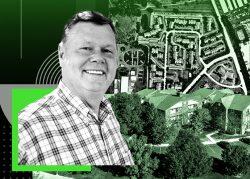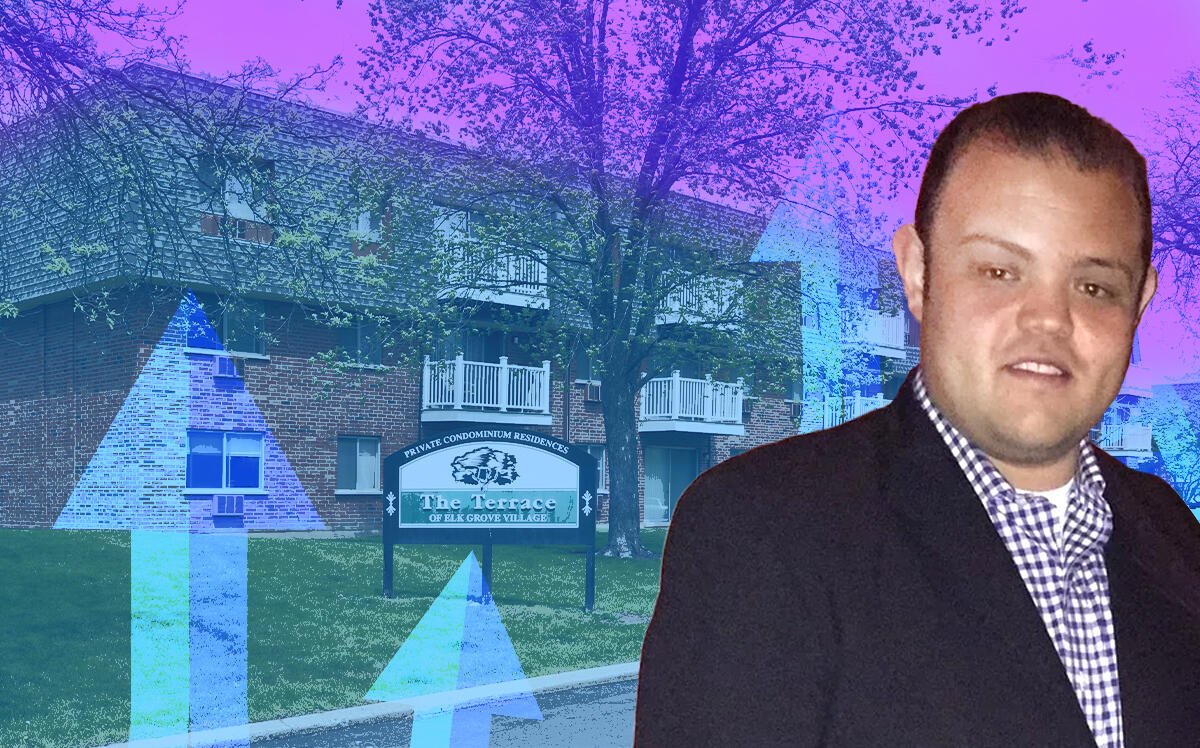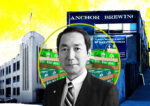 Condo deconversions hit roadblocks in Chicago suburbs
Condo deconversions hit roadblocks in Chicago suburbs
Trending
Suburban Chicago complex trades for $57M in condos-to-rentals buyout
Terrace of Elk Grove Village sale illustrates shift from homeownership

Investors continue to find ways to pick up entire suburban Chicago condo complexes and turn them into more profitable rental properties even as such deals become more difficult in the city.
The latest example is the Terrace of Elk Grove Village, a 427-unit property west of O’Hare International Airport, at 908 Ridge Square, which just was bought from condo owners by Deerfield-based United Group Development for $57 million, Crain’s reported.
The deal will transform the property from condos that can be individually sold or leased by residents and investors, into one rental complex managed by a sole owner with units rented to its residents, in a type of transaction known as a condo deconversion that gained steam in Chicago several years ago and is picking up pace in the suburbs now.
“Where we’ve seen condo deconversion still making sense tends to be with smaller unit types,’’ said Kate Varde, principal of multifamily brokerage Essex Realty Group in Chicago, which just listed an Evanston condo building for sale as a deconversion. “Sales prices for those condominiums still haven’t recovered. But rents have grown substantially. They’re worth more as an apartment.”
After Chicago saw a series of condo deconversion sales in the late 2010s, city officials in 2019 passed a law requiring 85% of a condo property’s ownership to vote in favor of a deconversion sale, increasing it from the 75% Illinois law requires.
If unit owners object to the sale of their unit as part of a deconversion, but are among less than 25% of the ownership in the suburbs or 15% in the city, they have no choice but to comply with the closing and sell their condo as part of the deal.
Chicago’s higher bar has slowed down the deconversion train, said Varde, although there are properties where it has been met, such as at 10 East Ontario Street, where 85% of owners of its 467 units have agreed to a record-breaking $190 million deconversion sale price in a deal that hasn’t yet closed. Nonetheless, investors have turned more attention to condos in the suburbs and switching them into apartments.
Many of the buildings being turned into apartments now, including the Terrace of Elk Grove as of 2005, already were once rentals. Developers saw a demand for homeownership, though, and started selling them as condos. After the housing bubble burst and caused the Great Recession, the condo market was dragged down, too, and its prices in many properties have never recovered to what unit owners paid.
“Some of them probably never should have been converted into condos in the first place,’’ said Tyler Hague, who’s based in Chicago and works on multifamily deals for Colliers International. When people were paying $250,000 for a 600 square-foot condo in 2006, there was an inflated market. This is a more Chicago-esque phenomenon. These products allow for great value-add deals in the investment community. That’s why they’re pretty sought after, they’re pretty challenging. They take a lot of time and effort.”
Deconversions offer the chance for some appreciation of a condo’s value, but not always, and when unit owners feel they’re getting stiffed on the price offered for their condo, they can hold out on signing closing documents and head to court, as has recently happened elsewhere in the suburbs.
Landlord and developer Cunat, for instance, has made offers to purchase condo owners out of two suburban properties the company originally developed, and both have hit snags, with the unit owners at the Prairie Point complex in Lake in the Hills shunning a $34 million offer on about 300 units and an $11 million purchase of 124 units in a McHenry complex held up in litigation between residents and the condo board for now.
Condo owners in many cases could buy little else for the money they are being offered for their units in the suburbs as supply is tight and single-family home prices have spiked in the Chicago area over the last two years, meaning the 75% bar can be hard to reach for investors hoping to sell their condos and buyers wanting to turn a property into a rental.
“It is challenging unless it’s a huge windfall for everyone. It’s a challenge to get to the 75% and it’s a challenge to get to closing,” Varde said.
[Crain’s] – Sam Lounsberry
Read more
 Condo deconversions hit roadblocks in Chicago suburbs
Condo deconversions hit roadblocks in Chicago suburbs
 The Chicago condo deconversion craze is dying
The Chicago condo deconversion craze is dying




